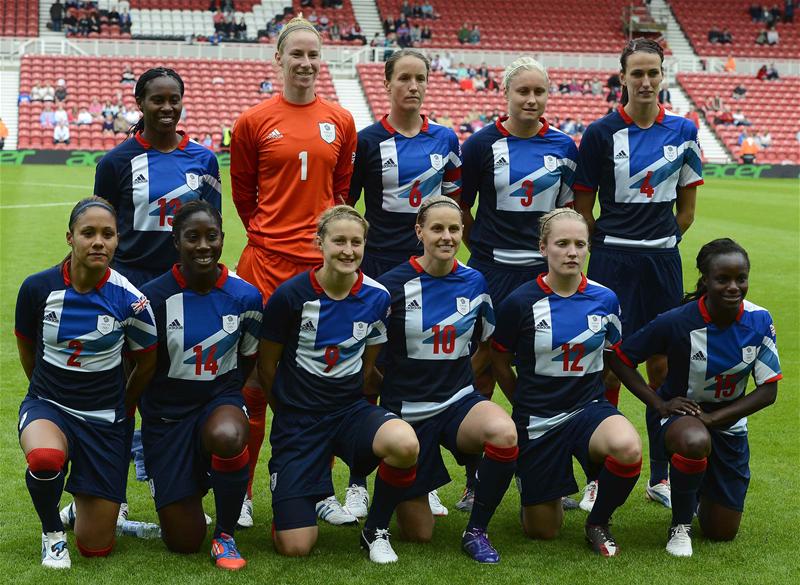Image Credit: [Squawka]
Team GB’s Women’s football team may be able to compete at Tokyo 2020, depending on the performance of England at the Women’s World Cup in France in 2019. The four home nations have come to an agreement allowing there to be a Women’s Team GB football side, with previous apprehensions over a Team GB football side threatening national identity diminishing.
So how do Team GB qualify?
3 UEFA sides are granted qualification for the Tokyo 2020 Olympic Games from the France 2019 World Cup. These spaces are logically given to the 3 best performing UEFA teams at the tournament; this is calculated by a league table with the number of points a team would have been expected to earn at the World Cup had it been a league, but obviously if you reach a further round you are automatically above anyone who exited in a round before yours.
FIFA has stated that only one team could represent Team GB at the World Cup, and even though Scotland qualified, England has been nominated. England produced a semi-final finish in the 2015 World Cup and they echoed such feats with another semi-final at Euro 2017, and a repeat would likely lead to Team GB’s qualification.

What chance do they have?
Hot tipped favourites to claim the tickets to Tokyo 2020 are: hosts France, fellow semi-finalists and regular football rivals Germany, while the Netherlands want to create some more ‘Oranjekoorts’ (Orange Fever) they forged in their winning act at Euro 2017. Nevertheless, this is the World Cup, and as was seen at men’s World Cup this summer, anything can happen; Nordic nation’s Norway and Sweden are expected to be resilient dark horses.
Why have Team GB not competed at football before?
There has always been a common concern within the home nation’s that if they allowed there to be a Team GB football side at the Olympics, FIFA would force them to join for their competitions. Furthermore, reasons for why the respective FA’s have been so disunited is due to the political side and fears of national identity being marred. It is long known in football folk law that Scotland hate England, Wales hate England, and Northern Ireland hate England. This is why in 2008 when the Women’s side qualified for Beijing, it was at the refusal of Scotland, Wales and Northern Ireland FA’s. Former Sports Minister (2001-2007), Richard Carbon, described it as a “National scandal… that these nearly all-male organisations can deny their women footballers the chance to play in the Olympics is beyond belief.
“There is an element of politics at play here, but we understand, especially for the women’s game, there is some benefit in our women having some competition experience and the Olympics provides that”.
Team GB did manage to put out a team in the London Summer Olympic Games in 2012, and overall it was a success; except for Julie Fleeting, daughter of Jim Fleeting (SFA’s Director of Football Development), ruling herself out on anguish that participation may jeopardise the Scottish national team. Before Rio 2016 there was an attempt to produce another Women’s side, but this was blocked again by Scotland, Wales, and Northern Ireland. It is easy to understand why Scotland, Wales, Northern Ireland FA’s are hesitant to join England for Team GB given the history between these nations and their football odes to tribalism, but it’s 2018 and we are way past that and the only ones that lose from this arrangement are the players. The Welsh FA’s Chief Executive, Jonathon Ford, in comments to the BBC explained: “There is an element of politics at play here, but we understand, especially for the women’s game, there is some benefit in our women having some competition experience and the Olympics provides that.”
Politics often runs across a contentious tightrope with sport, with politically based boycotts at both the 1980 and 1984 Olympics, and with Theresa May calling for one at Russia’s 2018 Men’s World Cup. Sometimes it is justified, sometimes it is just a politician wanting to make a statement that will get screen time. Even so, it is great to see sport and politics adjoined in some sort of agreement that will help Women’s football move in a direction that will hopefully celebrate everything that is great about Women’s football in the UK.
Owen Ellicott

